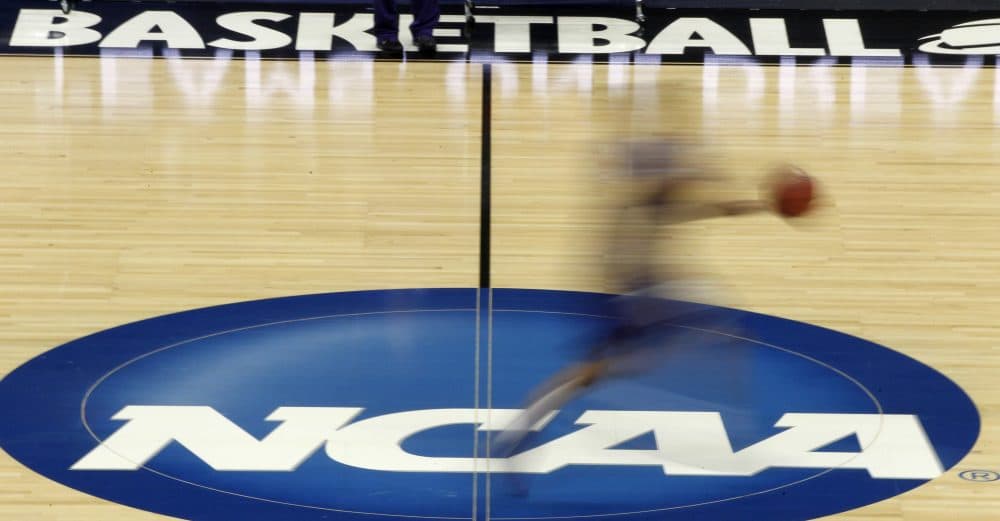Advertisement
NCAA Show
Power, Money And Corruption: The Story Of The NCAA
Resume
This week on Only A Game, we dedicate the entire hour to one question: Should college athletes be paid?
As you've probably heard, big-time college sports are in trouble. Two weeks ago, the FBI arrested 10 people, including four college basketball coaches for allegedly accepting bribes to funnel players to certain agents and financial advisers.
But the problems with the NCAA didn't begin on Sept. 26, when those charges were announced. The story of the NCAA is a story of power, money and corruption. It's been going on for a long time. And it's the athletes and their families who get hurt.
"I wake up in the middle of the night dreaming that I walk in the door, and he's hanging or he shot himself because he's that depressed," the mother of a former college basketball player tells Only A Game. "You put trust in these universities. You trust them with your kid on and off the court. And once you're a damaged good, they just kick you to the curb."
We've spent the past couple months trying to figure out how the NCAA and amateurism went wrong. And can the system be fixed? Or does it need to be dismantled?
Subscribe to the Only A Game podcast on Apple Podcasts, NPR One or Stitcher.
Is 'The System' Broken? Amateurism In The NCAA
The college sports industry brings in about $10 billion in annual revenue, but how much of that do the athletes themselves see? Only A Game's Karen Given and WBUR's Shira Springer take an initial look at how the NCAA's amateurism model can lead to scandal.
Power And The NCAA: One Athlete's Fall From The Big 12 To The Oil Fields
Kyle Hardrick was once a top basketball prospect. Now he pulls 12 hour shifts in the oil fields near Odessa, Texas.
Tracing The Origins Of College Sports Amateurism
Today, sports are seen as a way for kids to get a college education. But that's not how college sports started out. Only A Game's Karen Given looks at amateurism's role in reinforcing class divisions.
How Two Wisconsin Basketball Players Decided To Take On The NCAA
Zach Bohannon used to agree with the average American that college athletes should not be paid. But while playing basketball at Wisconsin, Zach started noticing more and more problems with the NCAA system. And then he found an unexpected ally.
Walter Byers: The Man Who Built The NCAA, Then Tried To Tear It Down
Walter Byers established the NCAA's enforcement division and turned the league into a moneymaking operation. But after more than 30 years of defending amateurism, he started speaking out against it.
HBCUs And Their Role In Disrupting The College Sports 'Cartel'
Historically black colleges and universities (HBCUs) once boasted some of the best college sports programs in the country. But they've been all but shut off from the booming big-time NCAA economy. WBUR's Shira Springer looks at how they were left out and why some think they hold the key to dismantling amateurism.
No Pay, No Problem: Former College Hoopster Says NCAA Doesn't Exploit
For former Oklahoma State men's basketball player Doug Gottlieb, college was a time when "you didn't have to worry about anything." He doesn't believe he was exploited. In fact, he says he was the one doing the exploiting.
Littlefield: The NCAA Needs To Do More To 'Do Right' By Athletes
On Wednesday, NCAA President Mark Emmert called for "substantive changes" within the organization in support of "student-athletes." Bill Littlefield believes that for the NCAA to truly change, it must abandon amateurism.
This program aired on October 14, 2017.